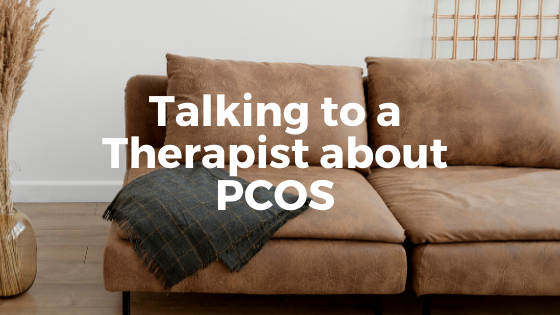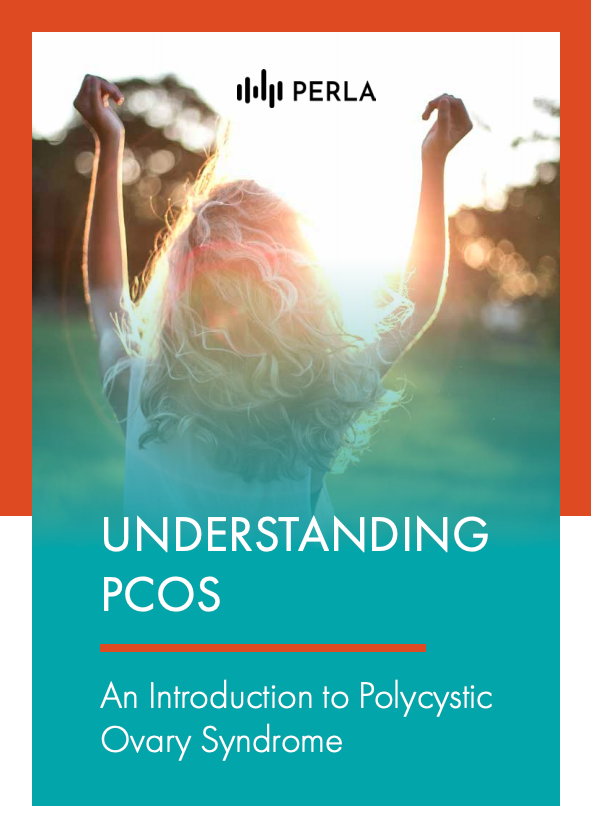Receiving the diagnosis of PCOS is often very difficult. PCOS is the most common cause of female infertility and women with this condition may need fertility treatments to conceive. Symptoms of PCOS such as severe acne, weight gain, and hirsutism can also have a big impact on mental health.
There also is growing evidence that PCOS can affect a patient’s mental health, including anxiety, depression, and eating disorders. Talk therapy or counseling can help reduce the psychological impact of PCOS.
The Link between PCOS and Mental Health
In a study conducted by the Neuroscience and Mental Health Research Institute at Cardiff University, it has been found that women with PCOS were more likely to be diagnosed with mental health disorders, including anxiety, depression, and bipolar disorder.1
Another study suggests that, in addition to symptoms that can make a woman feel unfeminine (like facial hair growth and infertility), the symptom that may be the most responsible for psychiatric problems is an irregular menstrual cycle.2 Several participants in a small qualitative study in the UK reported feeling anxious about losing control in their lives. Their symptoms also affected their social and personal interactions due to reduced self-confidence.3
“I don’t have control over it, it controls me sometimes, I feel.”
“You can’t look at people because then people look at your (hairy) arm and you think people are looking too closely…”
“… I have two or three friends that I will see regularly, but I don’t go out as much as I used to and I think some of that …. I don’t feel good enough about myself …”
The authors concluded that awareness and education through group sessions and individual support from healthcare providers can improve wellbeing in women with PCOS.
Do You Need A Therapist?
Counseling is a form of intervention that helps individuals achieve emotional wellness by providing psychological services. It is practiced by counselors, social workers, psychologists, psychiatric nurses, and psychiatrists.
Any of these health professionals can provide counseling. Using one over the other is a matter of preference, but you may want to work with someone who specializes in PCOS or infertility. They can help you learn about your feelings and thoughts and how to cope with them.
Psychotherapy (also known as talk therapy) and counseling are often used interchangeably. However, the former deals more with mental health disorders, and the latter is more concerned with the challenges of daily living: adjustment difficulties and stressful life events like the death of a loved one, loss of a job, chronic illness, and divorce.4 Still, they share similar activities and their services overlap.
You should consider therapy if your symptoms are bothering you and if they interfere with your daily functioning. Talk to a therapist if you are experiencing any of the following:
- you are feeling distressed about your weight, appearance, and fertility problems
- you are not getting enough sleep
- you isolate yourself and stop communicating with your friends
- you always feel irritable, restless, and unable to focus
- you are feeling hopeless about your treatment
- you don’t feel like doing the things you used to enjoy
- you feel like there is no one to listen or sympathize with you
- you have eating problems
- you don’t feel motivated to exercise or follow a healthy diet
- you find it hard to stop smoking or drinking excessively
- you think of harming yourself
Getting Started With A Therapist
Your first step may be your primary healthcare provider or family doctor. Ask to be referred to a therapist or counselor. Alternatively, you may contact an organization, such as The National Polycystic Ovary Association (PCOS Challenge), Verity, Cysters, and the PCOS Awareness Association. They will be able to offer advice or put you in touch with mental health professionals in your area.
Start with a phone call and ask about the therapist’s approach to dealing with mental health problems. Explain your reason for wanting to make an appointment and ask if he or she is experienced in dealing with clients with PCOS or infertility issues.
You may also want to inquire about payment options and if he or she accepts insurance. Make an appointment for an initial consultation if you are comfortable talking with him or her.
Be Hopeful But Realistic
There are many misconceptions and assumptions about therapy and counseling out there. People who visit a therapist with wildly unrealistic expectations and distorted hopes are bound to be disappointed.
Without your help, they don’t have the power to change the situation. It may take several weeks before you feel comfortable with your therapy. You may not get the results you want immediately. Along the way, you may need to switch to another professional, or in some cases, you may need to be referred to a specialist.
Throughout the whole process, it is important that you must not feel discouraged. Try to take each day as it comes. Find support from family and peers, and maintain awareness of your mental and physical health. There are over 10 million women who are affected by this condition. Many of them will recover and go on to lead fulfilling and happy lives. You can be one of them.
Sources:
- Berni TR, Morgan CL, Berni ER, Rees DA. Polycystic ovary syndrome is associated with adverse mental health and neurodevelopmental outcomes. J Clin Endocrinol Metab. 2018;103(6):2116-2125. doi:10.1210/jc.2017-02667
- McCook JG, Bailey BA, Williams SL, Anand S, Reame NE. Differential contributions of polycystic ovary syndrome (Pcos) manifestations to psychological symptoms. J Behav Health Serv Res. 2015;42(3):383-394. doi:10.1007/s11414-013-9382-7
- Hadjiconstantinou M, Mani H, Patel N, et al. Understanding and supporting women with polycystic ovary syndrome: a qualitative study in an ethnically diverse UK sample. Endocr Connect. 2017;6(5):323-330. doi:10.1530/EC-17-0053
- Leong FTL, ed. Encyclopedia of Counseling. SAGE Publications; 2008.


